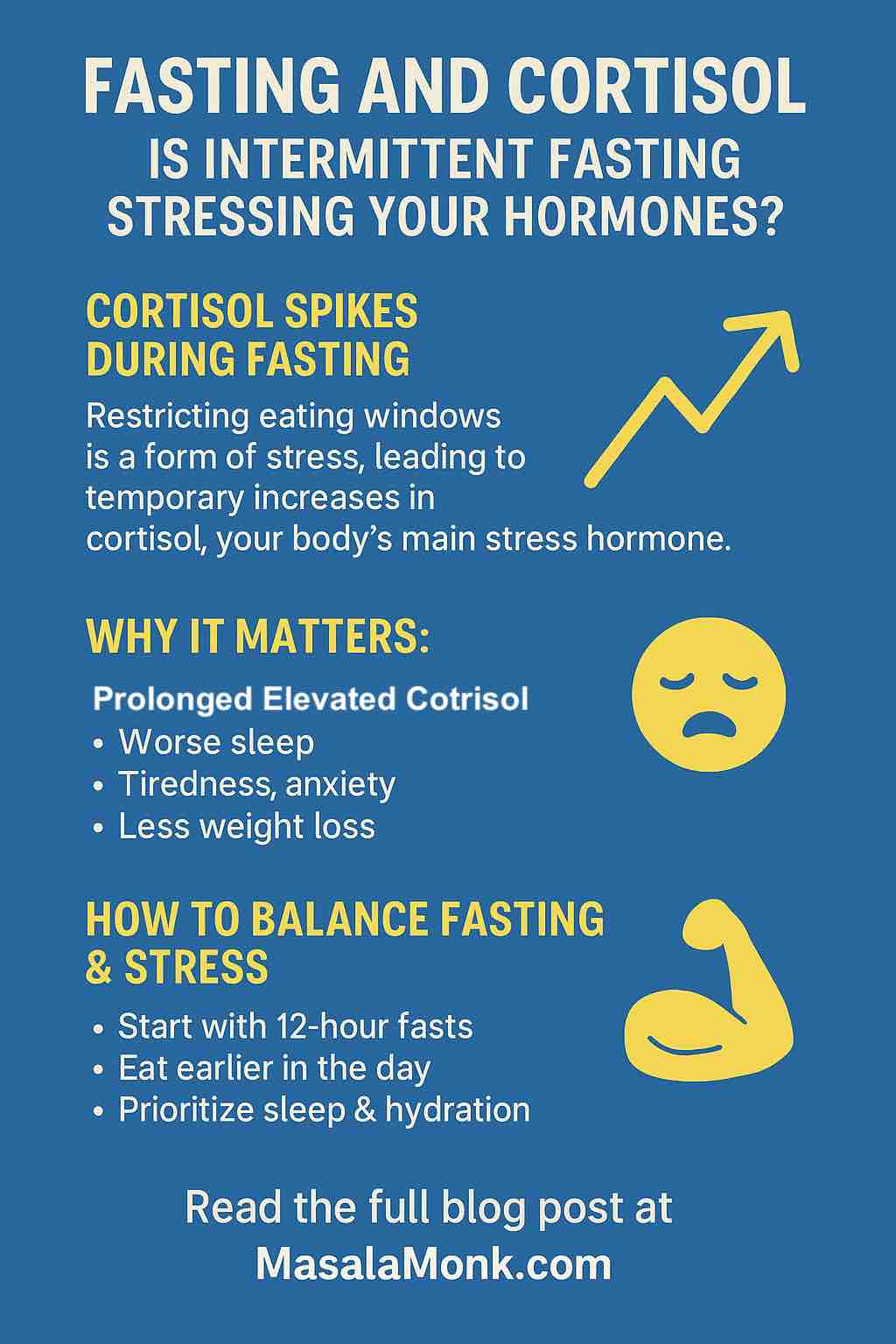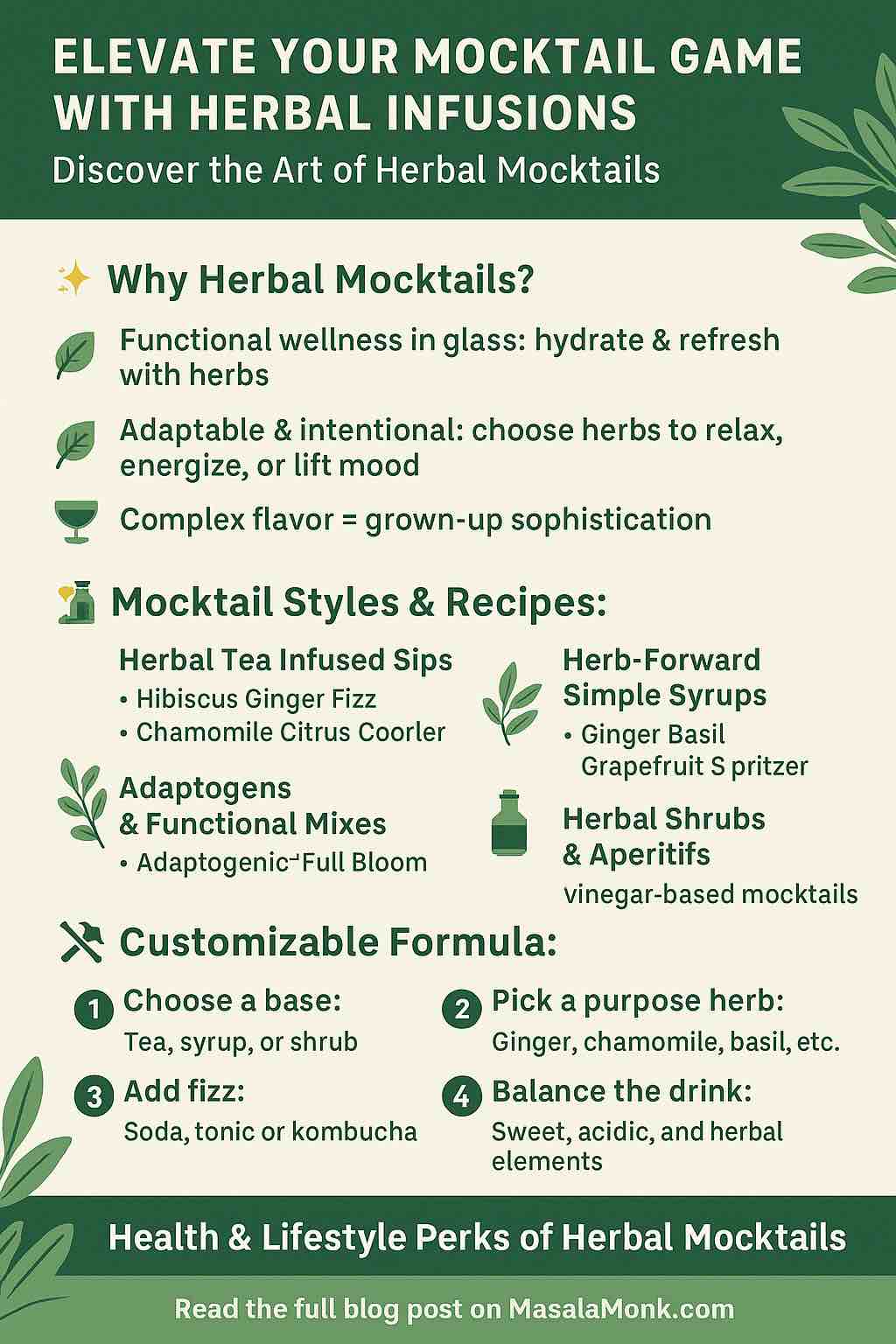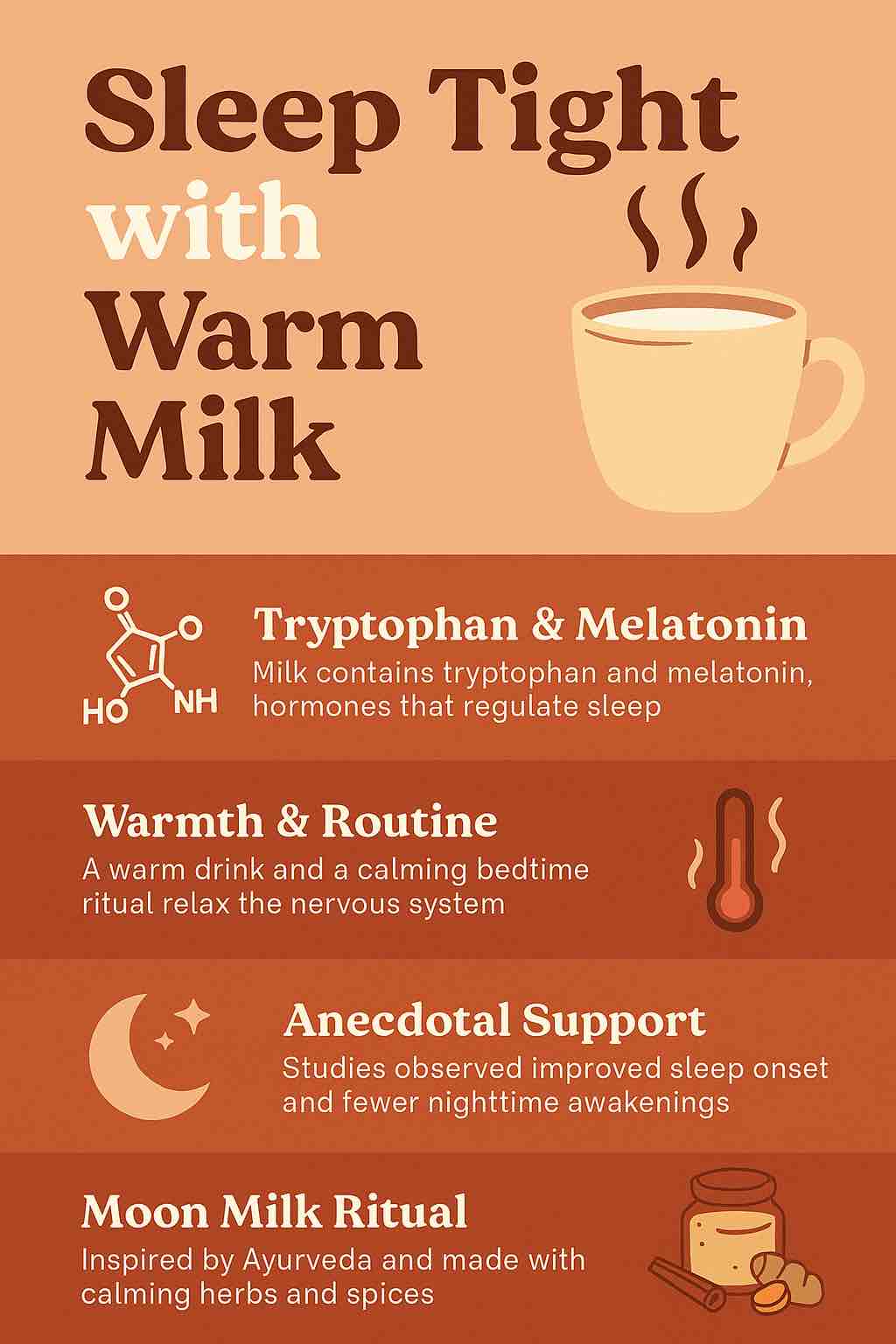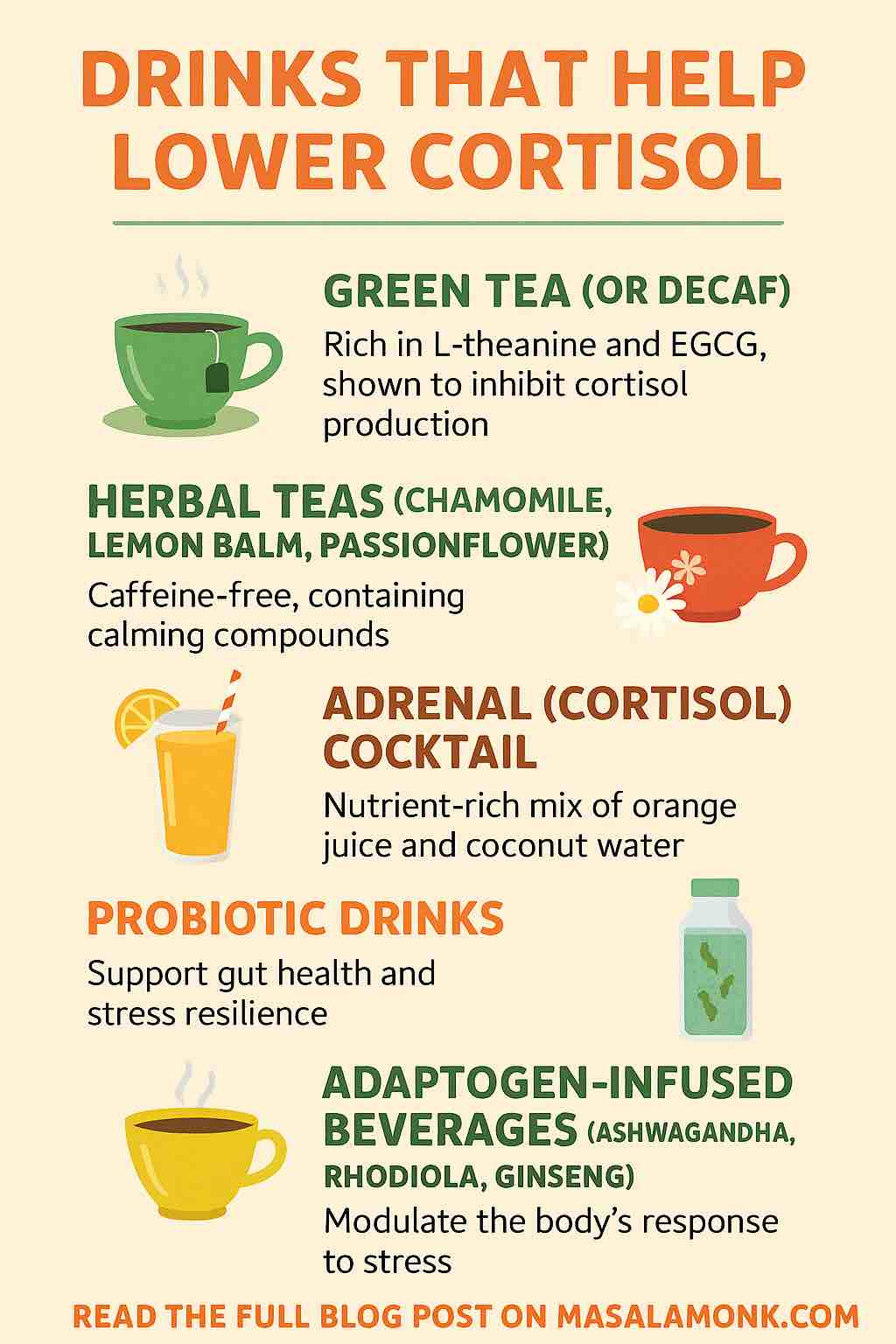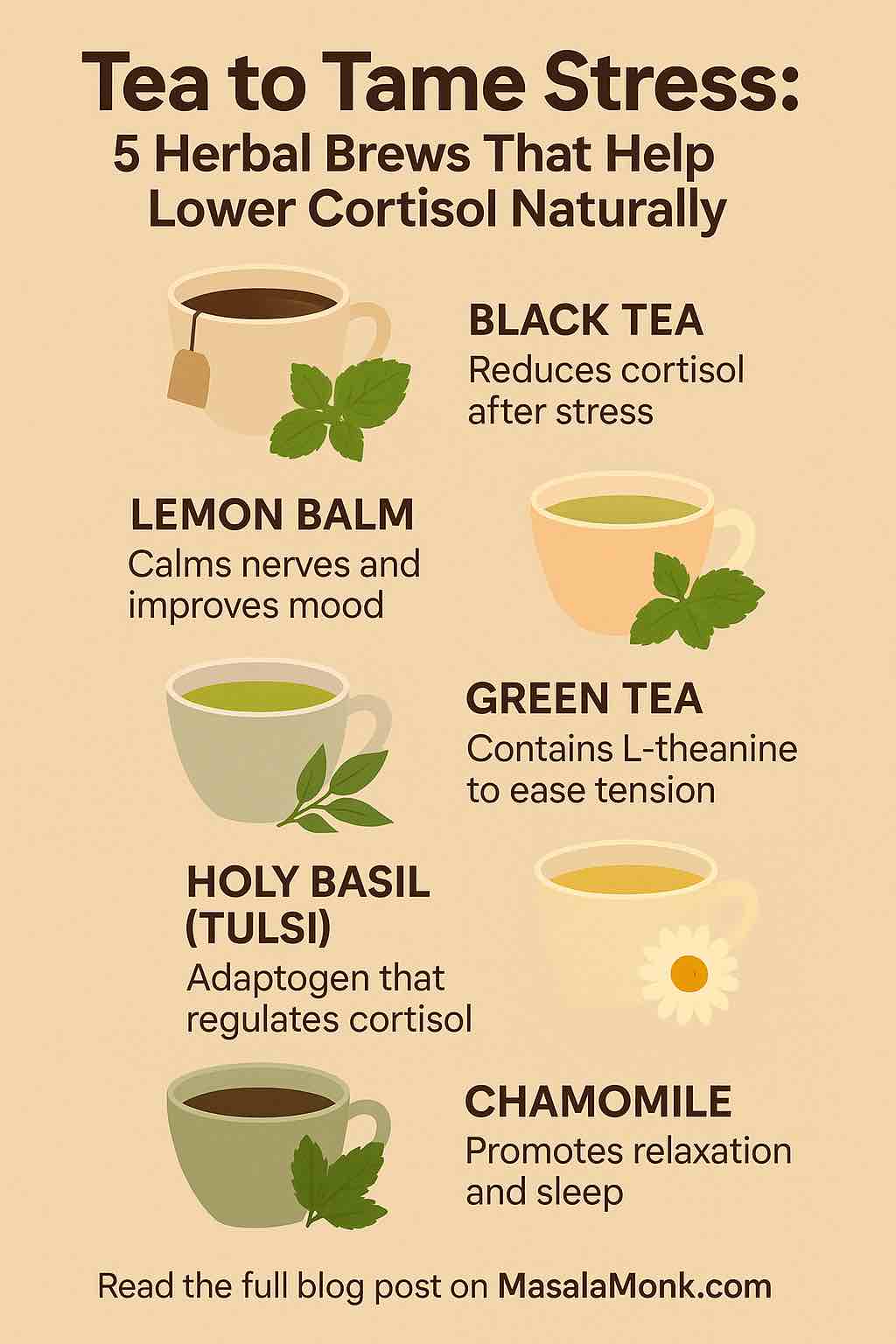
Feeling wired but tired? Struggling with anxiety, poor sleep, or stubborn belly fat?
Your cortisol levels might be out of balance—and the simplest remedy might already be in your kitchen: a warm, calming cup of herbal tea.
Modern life pushes our stress hormones into overdrive. But before reaching for supplements or prescriptions, it’s worth exploring one of the oldest (and most soothing) remedies: tea. Specifically, herbal and functional teas that help lower cortisol—the body’s primary stress hormone.
In this post, we’ll dive into the science-backed brews that help your body unwind, regulate hormones, and restore calm—plus how to make tea part of your daily stress-reducing ritual.
🧠 Why Cortisol Matters
Cortisol is your body’s built-in alarm system. It helps you respond to stress, balance energy, and regulate inflammation. But when cortisol stays chronically high—due to poor sleep, anxiety, blood sugar dips, or lifestyle stress—it can lead to:
- Belly fat that won’t budge
- Mood swings and irritability
- Poor sleep quality
- Cravings and fatigue
- Hormonal imbalances
If that sounds familiar, it’s time to support your body’s natural cortisol rhythm. Herbal teas can play a powerful role—calming your nervous system, supporting adrenal function, and creating rituals that signal safety to your brain.
📝 Already struggling with cortisol symptoms? Start here:
👉 10 Symptoms of High Cortisol Levels in Females
👉 5 Foods That Naturally Decrease Cortisol
🍵 The 5 Best Teas to Lower Cortisol Naturally
1. Black Tea – The Everyday Stress Soother
You might think only herbal teas help, but research shows black tea reduces cortisol significantly after acute stress. A landmark study found black tea drinkers had up to 47% lower cortisol levels post-stress compared to non-tea drinkers.
Why it works:
- Contains L-theanine – a natural compound that promotes alpha brainwaves (relaxation)
- Moderate caffeine (~40 mg) boosts energy gently, without spiking cortisol like coffee does
☕ Related: Coffee and Cortisol — How Your Brew Affects Stress, Weight and Well-Being
Best time to drink: Morning or early afternoon
Pair with: Protein-rich breakfast or a calming morning ritual
2. Lemon Balm (Melissa officinalis) – The Gentle Nervine
This mild, lemony herb is clinically shown to reduce anxiety and improve mood, even in single doses. It works by supporting GABA activity—a neurotransmitter that calms the brain.
Why it works:
- Contains rosmarinic acid and other compounds that reduce cortisol-like stress signals
- Improves sleep, digestion, and nervous system tone
Best time to drink: Late afternoon or evening
Try this blend: Lemon balm + chamomile for deep relaxation
3. Green Tea / Matcha – Calm Focus in a Cup
Unlike coffee, green tea gives you alertness without the jitters. That’s thanks to L-theanine, which moderates the stimulating effects of caffeine and helps lower cortisol.
Why it works:
- Supports alpha brainwave production
- Lowers stress-related cortisol and alpha-amylase
- Enhances calm clarity — ideal for work or study
🍵 Want a more alert alternative to coffee?
👉 Tea and Cortisol: How Your Favorite Brew Can Help Manage Stress
Best time to drink: Mid-morning or early afternoon
Pro tip: Try matcha with oat milk and cinnamon for a cortisol-friendly latte.
4. Holy Basil (Tulsi) – The Adrenal Adaptogen
Tulsi is a revered herb in Ayurvedic medicine known for its ability to balance cortisol, support mood, and improve resilience to stress. Modern studies confirm its adaptogenic benefits.
Why it works:
- Regulates the HPA axis (your stress-response system)
- Helps reduce inflammation, balance blood sugar, and improve sleep
🍽️ Related: Diet Strategies to Lower Cortisol Levels
Best time to drink: Morning or after lunch
Flavor profile: Earthy, slightly spicy — delicious with ginger or cardamom
5. Chamomile – The Bedtime Favorite
Chamomile is one of the most well-known herbs for relaxation and better sleep. Its compound apigenin binds to GABA receptors and helps calm the nervous system—gently supporting nighttime cortisol reduction.
Why it works:
- Reduces symptoms of anxiety
- Helps regulate sleep-wake rhythms
- Supports digestion and menstrual comfort
💤 Want to create a sleep-supporting routine?
👉 5 Soothing Drinks to Help Lower Cortisol and Calm Your Mind
Best time to drink: One hour before bed
Pair with: Magnesium-rich snack (like pumpkin seeds or banana)
🔄 Tea & Ritual: Why It Works Beyond the Herbs
Beyond the plants themselves, the act of making tea is powerful. Boiling water, steeping leaves, inhaling the aroma—it slows you down and sends a “safe” signal to your body.
Daily rituals like tea drinking are part of a broader strategy for managing stress and hormonal balance. They pair beautifully with:
- Balanced meals that don’t spike blood sugar
- Mindful morning routines (like journaling or walking)
- Adaptogen support when needed
🧘♀️ Struggling with cortisol rhythms in the morning?
👉 Morning Anxiety? Your Cortisol Might Be to Blame — Here’s How to Fix It Naturally
✅ Practical Tea Routines to Lower Cortisol
| Time of Day | Tea | Purpose |
|---|---|---|
| 🌞 Morning | Black tea or Tulsi | Gentle alertness + stress protection |
| ☕ Midday | Green tea or Matcha | Calm focus without the crash |
| 🌇 Evening | Lemon balm + Chamomile | Wind-down blend to lower cortisol before bed |
| 💤 Bedtime | Chamomile or Rooibos | Deep sleep and cortisol reset |
💬 Final Thoughts: Steep Your Way to Stress Relief
Cortisol balance isn’t about doing one big thing—it’s about small, repeated choices that calm your system every day.
Herbal tea is simple, nourishing, and time-tested. Start with one blend you love. Make it a ritual. Sip slowly. Breathe.
You’ll be amazed what happens when your body gets the message:
“You are safe. You can rest now.”
🔗 Related Reads from Masala Monk
- Tea and Cortisol: How Your Favorite Brew Can Help Manage Stress
- 5 Soothing Drinks to Help Lower Cortisol and Calm Your Mind
- Diet Strategies to Lower Cortisol Levels
- 5 Foods That Naturally Decrease Cortisol
- Morning Anxiety? Your Cortisol Might Be to Blame
- 10 Symptoms of High Cortisol Levels in Females
🙋♀️ FAQs: Herbal Teas for Cortisol & Stress Relief
1. Can drinking tea really lower cortisol levels?
Yes. Several studies show that certain teas—especially black tea, green tea, lemon balm, chamomile, and tulsi—can help reduce cortisol levels or promote a calmer stress response by supporting the nervous system and hormonal regulation.
2. What is the best tea for high cortisol?
There’s no one-size-fits-all, but black tea has been shown to reduce cortisol after stress, while chamomile, tulsi, and lemon balm offer gentle, natural stress relief that supports cortisol balance over time.
3. When is the best time to drink cortisol-lowering tea?
It depends on the tea:
- Morning: Black tea, green tea, tulsi (for energy + calm)
- Evening: Chamomile, lemon balm, rooibos (for relaxation + sleep support)
4. Does green tea reduce cortisol like chamomile or lemon balm?
Green tea contains L-theanine, which promotes calm alertness and has been shown to reduce stress-related cortisol and anxiety. It’s ideal for mid-morning or early afternoon.
5. Is tulsi (holy basil) good for adrenal fatigue?
Yes. Tulsi is an adaptogenic herb that supports the adrenal glands, helps regulate cortisol, and builds stress resilience over time.
6. Can I drink more than one type of tea in a day?
Absolutely. Many people benefit from rotating teas based on time of day—for example, green tea in the morning, lemon balm in the afternoon, and chamomile at night.
7. Will herbal teas help with anxiety as well as cortisol?
Yes. Teas like chamomile, lemon balm, and tulsi not only support cortisol regulation but also reduce anxiety by calming the nervous system and supporting GABA activity in the brain.
8. How long does it take to see results from herbal teas?
Some teas (like lemon balm) can reduce stress within an hour. Others (like tulsi) may need a few weeks of consistent use to see full cortisol-balancing benefits.
9. Are there any side effects or risks with these teas?
Most are safe when consumed in moderate amounts. However, pregnant or breastfeeding women and those on medications should consult a healthcare provider before using herbs like tulsi or high-dose chamomile regularly.
10. What other lifestyle tips help lower cortisol naturally?
In addition to tea, focus on:
- Balanced meals
- Gentle movement
- Good sleep
- Limiting caffeine and sugar
- Mindfulness or breathwork
For more, read: Diet Strategies to Lower Cortisol Levels

